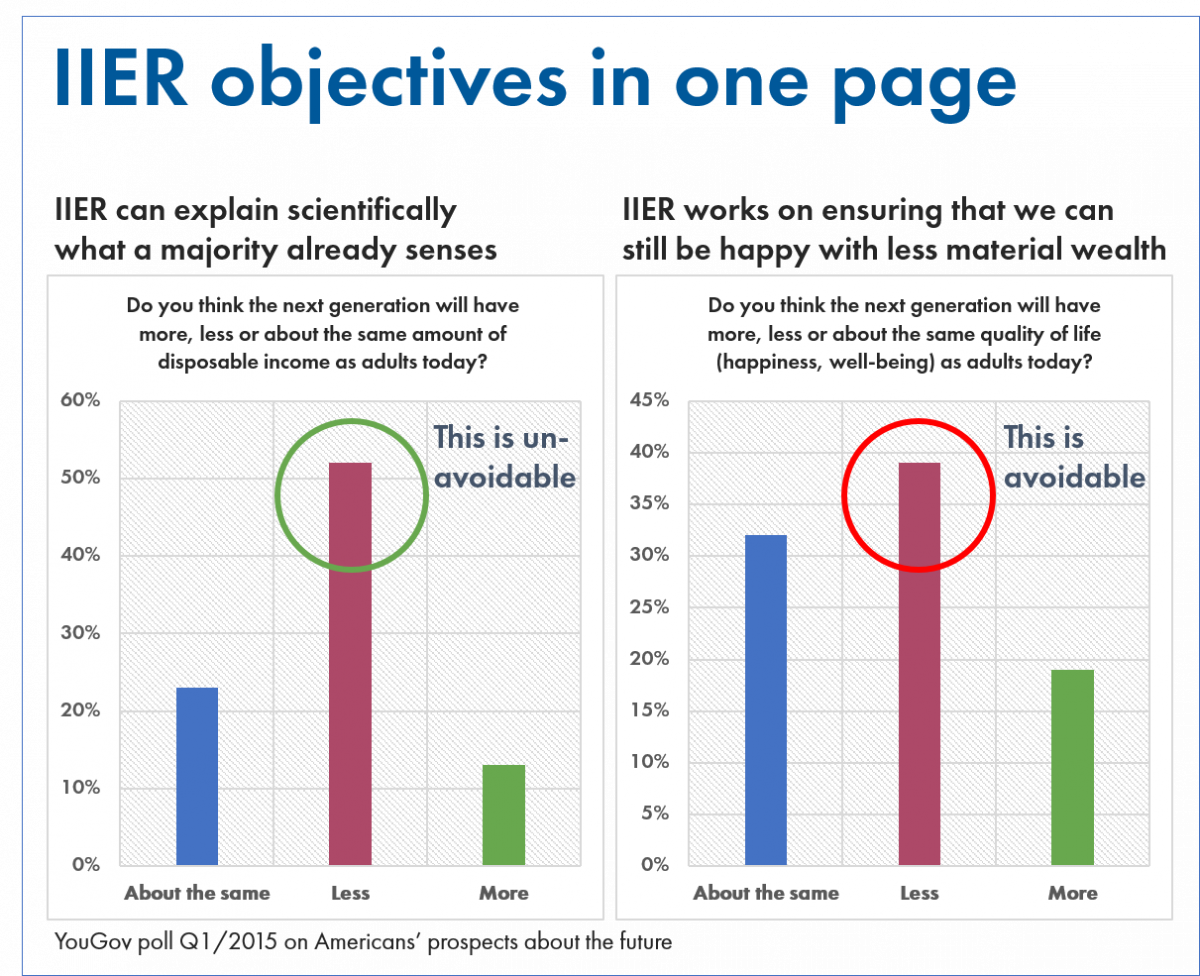If an alien anthropologist - an impartial expert on humans and our culture - were asked to organize the perfect conditions for a human society to ignore and avoid preparing for a great systemic risk, he or she or it likely couldn’t construct a more perfect scenario than our current one. If you’re reading this, you are human, and therefore likely possess a suite of near universal behavioral tendencies. Among them:
- We have an impressive ability to process information and to discover things, which is what brought us to the amazing state of organization and wealth we experience today;
- We’re at the same time perfectly wired to ignore and avoid information that is threatening or makes us uncomfortable.
- We overly care about the present and emotionally discount the future to such an extent that it exists only as an abstraction in our minds. Similarly, we extrapolate what we have experienced recently; that is, we expect what we see today to pretty much continue indefinitely:
- We respond to facts and data only if they fit with our beliefs, emotions and what prominent people in our ‘tribe’ are saying;
- We prefer simple stories (and solutions). Complex narratives, however accurate, are difficult, and cause us to use our analytical, neo-cortical brain regions, instead of emotional, motivational centers necessary for behavioral response.
- We are chock-full of cognitive biases: loss aversion, denial, authority bias, groupthink, cognitive dissonance, confirmation bias, and hundreds of others. These biases normally keep us sane, happy, and focused, but at the same time they allow us to rationalize our current behaviors and thus put off preparation and change;
- To top this all off, once we DO grasp the relationship between growth, energy, and money and realize a likely trend of contraction for advanced economies in coming decades, we paradoxically (and quite quickly) switch from a ‘there’s no problem’ attitude to an ‘it’s too late to do anything’ position. This shift - again - obviates the need for personal, community and global change.
In summary, the long-time horizon, lack of immediate physical and social cues that confirm what is likely coming, the complexity of the interrelated risks, and either ignorance or reticence among our leaders make the coming end of economic growth and its resultant challenges, almost the perfect storm for our human brains to appropriately respond to without great mental effort and discipline.
And culturally, we face a similar storm. We assume the institutions (and assumptions) that worked in the past, are naturally the ones that will work in the future. But all institutions – governments, corporations, even NGOs and Foundations are using the same playbook – an outdated playbook for the situation our culture finds itself in. As a result, for a species that looks to its leaders for leadership, our institutions are firmly in “respond to events” mode, not “anticipation and preparation using intelligent foresight” mode.
What does all this mean? It means the majority of bright, pro-social people in our culture are working on ‘solutions’ that have little overlap with the likely shape of our economy in coming decades. Many of our friends (for good reasons, at least historically) just assume business as usual will continue and ignore increasing data to the contrary. Many others we know are focused on ‘what should happen’ as opposed to what will. We are thus left with almost perfect psychological barriers that prevent us from preparing for a very real storm on the horizon.
At its core, what we face is really a simple story. We’ve designed a social system around physical growth and no longer have the conditions for growth. So far, each time we’ve encountered limits, we responded with rule changes, for example low-interest money, additional welfare guarantees, or increasing debt ceilings. But on the not-too-distant horizon, we have a - now unavoidable - date where the financial system will be recalibrating with the physical system that underpins it. This is on few people’s radars, but fewer still have a cohesive plan. Yes, imagining these events accompanying a Great Simplification is unpleasant - especially if one is expecting 3% annual growth to continue indefinitely. But such a contraction patently does not mean we face disaster – even if our economies shrink by 1/3 in overall size, our children would still be the 2nd richest in material terms in all history – and, if creatively envisioned and engineered, could actually be the richest in terms of life experience and fulfillment. But due to the individual and cultural biases listed above, we are far away from these goals at the moment..

At IIER we don’t have all the answers, but we’ve thought about and worked on the questions for over a decade. We do not work on avoiding what is coming it because it is now unavoidable. We do not seek to explain every detail of how energy, money, and human response shape the various trajectories and timing – (because we integrate so many aspects of our situation, we’re likely to get some details wrong, but are very likely correct about the larger picture, which is: developed countries are radically unprepared for contracting economies). What we do seek is your help, in working on all scales of this problem – in your communities, with your local and regional institutions and across previous institutional walls. This is an ‘all-hands-on-deck’ situation for our culture. If such preparations and efforts are not in your power to implement, then please volunteer time or money to support others working in this space (there aren’t many). Please take a look at our project list that could get you started on some tangible response to use intelligent foresight ahead of this ‘perfect storm’.

